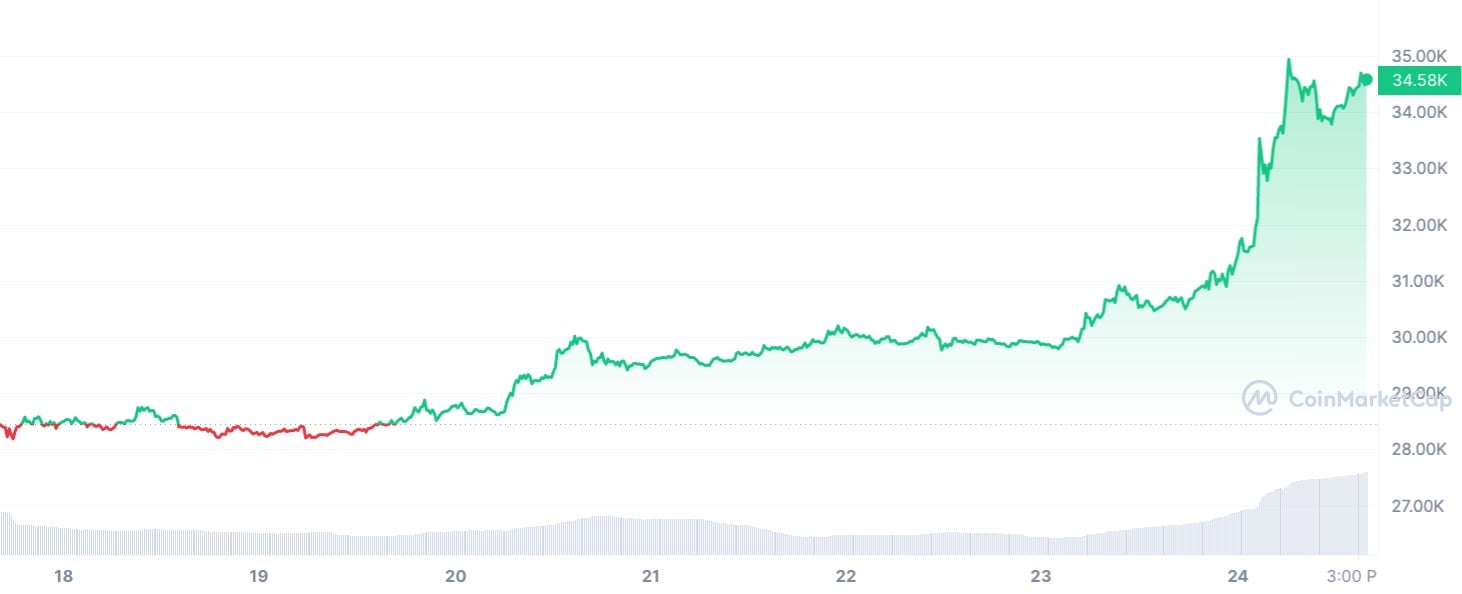
Disclaimer: The opinions expressed by our writers are their own and do not represent the views of U.Today. The financial and market information provided on U.Today is intended for informational purposes only. U.Today is not liable for any financial losses incurred while trading cryptocurrencies. Conduct your own research by contacting financial experts before making any investment decisions. We believe that all content is accurate as of the date of publication, but certain offers mentioned may no longer be available.
In the last week of October, Bitcoin (BTC) reached an annual pinnacle, soaring to an impressive $36,000 per BTC. This surge not only signifies a yearly high for Bitcoin but also heralds a momentous occasion as the cryptocurrency successfully closed the major price gap on the CME Bitcoin chart, a development closely watched by traders and analysts alike.

CME gaps, which have become a captivating aspect of Bitcoin's trading patterns, materialize when disparities arise between Bitcoin's closing and opening prices on the Chicago Mercantile Exchange (CME). Analysts and traders closely monitor these gaps as they offer valuable insights into potential price movements.
The significance of the CME goes beyond its role in creating these gaps; it is, in fact, the world's largest and leading derivatives marketplace, with a history dating back to 1898. CME's regulated and cash-settled futures have long been favored by institutions seeking exposure to cryptocurrencies without actual ownership.
Institutional BTC trading at all-time highs
Amid the recent fluctuations in Bitcoin's price, an interesting statistic has emerged, presented by Vetle Lunde, senior analyst at K33 Research. Lunde noted that open interest (OI) in CME BTC futures has surpassed 100,000 BTC for the first time ever. Furthermore, CME's market share has now reached an all-time high of 25%, rapidly approaching Binance in terms of perps and futures.
The record-breaking increase in stats in CME BTC futures signals a new era, in which major players, especially traditional institutions, are increasingly embracing Bitcoin trading.

 Dan Burgin
Dan Burgin Vladislav Sopov
Vladislav Sopov